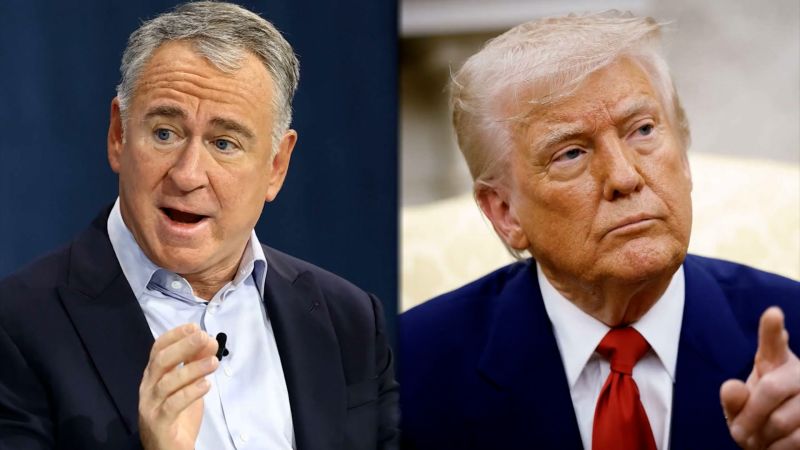The article brings attention to the remarks made by Ken Griffin, the CEO of Citadel and a prominent supporter of former President Donald Trump, regarding Trump's trade war. This unexpected criticism from a major financial figure raises several questions about the implications of such statements on public perception and economic policies.
Purpose of the Article
The publication of this article likely aims to highlight dissenting opinions within the business community regarding the Trump administration's trade policies. By showcasing Griffin's criticisms, the article may seek to inform readers that not all supporters of Trump agree with his economic strategies. This could foster a more nuanced view of the business elite's relationship with political leadership, particularly in the context of trade.
Public Perception
By framing Griffin's warning as "harsh words," the article may create a perception that there is growing discontent among influential business leaders about Trump's trade war. This could lead readers to question the effectiveness of the administration's economic policies and their long-term implications for both the market and the broader economy.
Hidden Agendas
While the article predominantly focuses on Griffin's views, it may also serve to distract from other ongoing economic issues or political controversies. The emphasis on Griffin's criticism could divert attention from negative market trends or other significant political developments that might require public scrutiny.
Manipulative Elements
The article could be seen as having a manipulative quality due to its selective focus on Griffin's criticisms while potentially downplaying the perspectives of other business leaders who may still support Trump's trade policies. The language used—describing his comments as "unusually harsh"—adds an emotive layer that could influence readers' opinions.
Credibility of the Article
The information presented in the article seems credible, as it quotes a well-known figure in the financial world. However, the impact of Griffin’s comments is subjective and may not reflect the broader consensus among business leaders. The credibility is enhanced by the recognition of Griffin's status and his previous support for Trump, making his criticism noteworthy.
Target Audience
This article may resonate more with individuals who are skeptical of Trump’s economic policies or those who value a diversity of opinions within the business community. It appears to target readers who are engaged in political discourse and those interested in the intersection of finance and politics.
Impact on Markets
Griffin's warnings could influence market sentiment, particularly if they resonate with other investors wary of the trade war's consequences. Stocks in sectors heavily impacted by trade policies, such as manufacturing and exports, might experience volatility in reaction to such criticisms.
Global Power Dynamics
While this article primarily focuses on U.S. domestic issues, it indirectly touches on global power dynamics by discussing trade wars, which can have international ramifications. The ongoing trade tensions can alter relationships with global trading partners and affect the balance of economic power.
Use of AI in Article Composition
It’s possible that AI tools were utilized in crafting the article, particularly in structuring the narrative and presenting data. AI models could have assisted in generating an engaging and coherent argument, especially in analyzing the significance of Griffin's statements. However, there is no clear indication of specific AI involvement in the content presented.
In conclusion, the article reflects a complex interplay of business interests and political commentary. It suggests that not all financial leaders are in lockstep with the political administration's policies, thereby enriching the public discourse around economic strategies.
